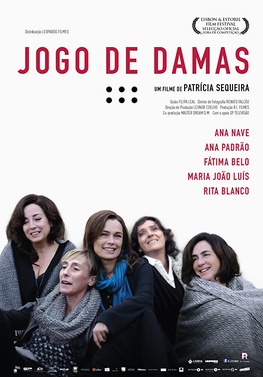
The Cinema of Portugal started with the birth of the medium in the late 19th century. Cinema was introduced in Portugal in 1896 with the screening of foreign films and the first Portuguese film was Saída do Pessoal Operário da Fábrica Confiança, made in the same year. The first movie theater opened in 1904 and the first scripted Portuguese film was O Rapto de Uma Actriz (1907). The first all-talking sound film, A Severa, was made in 1931. Starting in 1933, with A Canção de Lisboa, the Golden Age would last the next two decades, with films such as O Pátio das Cantigas (1942) and A Menina da Rádio (1944). Aniki-Bóbó (1942), Manoel de Oliveira's first feature film, marked a milestone, with a realist style predating Italian neorealism by a few years. In the 1950s the industry stagnated. The early 1960s saw the birth of the Cinema Novo movement, showing realism in film, in the vein of Italian neorealism and the French New Wave, with films like Dom Roberto (1962) and Os Verdes Anos (1963). The movement became particularly relevant after the Carnation Revolution of 1974. In 1989, João César Monteiro's Recordações da Casa Amarela won the Silver Lion at the Venice Film Festival and in 2009, João Salaviza's Arena won the Short Film Palme d'Or at the Cannes Film Festival. Several other Portuguese films have been in competition for major film awards like the Palme d'Or and the Golden Bear. João Sete Sete (2006) was the first Portuguese animated feature film. Portuguese cinema is significantly supported by the State, with the government's Instituto do Cinema e do Audiovisual giving films financial support.

The Gilded Cage is a Franco-Portuguese comedy film released in 2013. The film was Ruben Alves' directorial debut and it was inspired by his parents' life.
Os Maias (Alguns) Episódios da Vida Romântica is a 2014 Portuguese film directed by João Botelho and based on the 19th century novel Os Maias by Eça de Queirós. It was released in September 2014.

O Crime do Padre Amaro is a 2005 Portuguese drama film directed by Carlos Coelho da Silva and based on the 19th century novel of the same name by Eça de Queirós. It stars Soraia Chaves, Jorge Corrula and Nicolau Breyner.
Complexo - Universo Paralelo is a 2011 Portuguese documentary film about life in the most dangerous favela in Rio de Janeiro, Complexo do Alemão, directed by Mário Patrocínio.

Virados do Avesso is a 2014 Portuguese comedy film directed by Edgar Pêra. It was released on 27 November 2014.

Mau Mau Maria is a 2014 Portuguese comedy film directed by José Alberto Pinheiro. It was released on 30 October 2014.
Beauty and the Paparazzo is a 2010 Portuguese movie directed by António-Pedro Vasconcelos starring Soraia Chaves and Marco d'Almeida. It was the highest-grossing Portuguese film in 2010.
Marco d'Almeida is a Mozambique-born Portuguese actor born on April 27, 1975. He was the male star in Beauty and the Paparazzo, the highest-grossing Portuguese film in 2010.
Alexandre Cebrian Valente is a film producer and director from Portugal. His film Second Life was the second highest-grossing Portuguese film in 2009.
Backlight is a 2010 Portuguese–American mystery and action drama film directed by Fernando Fragata. It stars Joaquim de Almeida, Evelina Pereira, and Scott Bailey.
Sorte Nula is a Portuguese film directed by Fernando Fragata. It stars António Feio and was the highest-grossing Portuguese film in 2004.

Jogo de Damas is a 2015 Portuguese drama film directed and written by Patrícia Sequeira and Filipa Leal, and starring Ana Nave, Ana Padrão, Fátima Belo, Maria João Luís and Rita Blanco. It premiered on the Lisbon & Estoril Film Festival in November 2015 and was released in Portugal on January 28, 2016.







